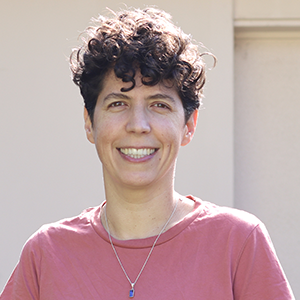September 3-5, 2025
Chicago, IL
Why? Our aim is to encourage research into the quality and credibility of peer review and scientific publication, to establish the evidence base on which scientists can improve the conduct, reporting, and dissemination of scientific research.
Presentations included
51 studies in plenary sessions
142 posters
4 invited talks
Who? More than 500 participants from 40 countries attended, including editors and publishers of scientific peer-reviewed journals, researchers, funders, bibliometric and informatics experts, information innovators, librarians, journalists, scientific information disseminators, publishing service providers, and others interested in the progress of the scientific information enterprise and the quality of scientific evidence.
The Congress included a wide range of disciplines, including biomedicine, health and life sciences, applied sciences, basic sciences, physical and chemical sciences, mathematics, computer sciences, engineering, economics, and social sciences.
Meeting program available here.
Information about Sponsors and Exhibitors is available here.

Invited Speakers

The Drummond Rennie Lecture
Forward to the Past—Making Contributors Accountable
Ana Marušić, MD, PhD, is senior editor in chief of ST-OPEN, an overlay journal of the University of Split, in Croatia. Prof Marušić is the founder of Cochrane Croatia, serves on the Advisory Group of the EQUATOR Network, and was editor in chief of the Croatian Medical Journal and the Journal of Global Health. Prof Marušić’s research interests include evidence-based medicine and research integrity. She has published over 400 articles in peer-reviewed journals and was heavily involved with creating the policy of mandatory registration of clinical trials in public registries, which helped change the legal regulation of clinical trials worldwide. She has participated in several EU projects related to research integrity and responsible research and innovation. She was the president of several editorial organizations: EASE, CSE, and WAME. She serves on the Council of the Committee on Publication Ethics (COPE), and as the president of The Embassy Foundation. She is also the founding member of the Croatian Reproducibility and Integrity Network, CroRIN.

The Douglas G. Altman Lecture
Does the Journal Article Have a Future?
Malcolm Macleod, MBChB, MRCP, PhD, is Professor of Neurology and Translational Neurosciences and co-director of Edinburgh Neuroscience at the University of Edinburgh. He co-founded the Collaborative Approach to Meta-Analysis and Review of Animal Data from Experimental Studies (CAMARADES) in 2005, and since then he has been at the forefront of the application of evidence synthesis tools to preclinical research. This has included using systematic approaches to selecting drugs for multi-arm multi-stage trials in neurodegenerative diseases; Living Systematic Reviews of animal data in mental health; evidence synthesis as a tool for research improvement; and the development and evaluation of automation approaches for PDF retrieval, de-duplication, risk of bias annotation, and citation screening. He was an author on the Lancet Series on Research Waste, spends a day a week as an NHS Neurologist, and is a keen runner. Most of his success can be attributed in large part to the work of others.

Journal Prestige Can and Should Be Earned
Simine Vazire, PhD, is a professor in the Melbourne School of Psychological Sciences at the University of Melbourne. Her research examines the individual and institutional practices and norms in science and the degree to which these norms encourage or impede scientific self-correction. She co-founded the Society for the Improvement of Psychological Science (SIPS) and serves on the board of directors of the Public Library of Science (PLOS) and the Berkeley Initiative for Transparency in the Social Sciences (BITSS). She has been a visiting fellow at Stanford’s Center for Advanced Study in the Behavioral Sciences (CASBS) and the Quality Ethics Open Science Translation (QUEST) center in Berlin. She served on the National Academy of Sciences study committee on Replicability and Reproducibility in Science. She has served as editor in chief at 3 journals and associate editor at 7 journals. She is currently the editor in chief of Psychological Science.

Which Human Values Are Embedded in AI Models?
Isaac “Zak” Kohane, MD, PhD, is the inaugural chair of Harvard Medical School’s Department of Biomedical Informatics, whose mission is to develop the methods, tools, and infrastructure required for a new generation of scientists and care providers to move biomedicine rapidly forward by taking advantage of the insight and precision offered by big data. Kohane develops and applies computational techniques to address disease at multiple scales, from whole health care systems to the functional genomics of neurodevelopment. He also has worked on AI applications in medicine since the 1990s, including automated ventilator control, pediatric growth monitoring, detection of domestic abuse, diagnosing autism from multimodal data, and most recently assisting clinicians using whole genome sequence and clinical histories to diagnose rare or unknown disease patients. He is a member of the National Academy of Medicine, the American Society for Clinical Investigation, and the American College of Medical Informatics. He is the inaugural editor in chief of NEJM AI and co-author of a recent book, The AI Revolution in Medicine.
